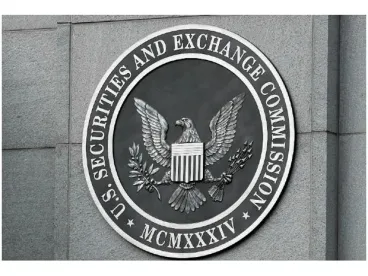On August 25, 2016, the U.S. Securities and Exchange Commission (SEC) adopted numerous substantive and technical amendments to Form ADV, Part 1A, which previously had been proposed in a release dated May 20, 2015. Several of the amendments will affect how investment advisers to private investment funds file initial and annual updating amendment reports with the SEC on Form ADV. The adopting release provides that the amendments will become effective 60 days after publication in the Federal Register, and advisers will need to begin complying with the amendments on October 1, 2017.
Accommodation of Umbrella Registration for Multiple Related Advisers to Private Funds
The changes adopted by the SEC amend Form ADV to accommodate the registration of private fund advisers operating a single advisory business through multiple legal entities via the filing of a single Form ADV. By way of background, in a no-action letter dated January 18, 2012, the staff of the SEC's Division of Investment Management provided guidance on the conditions under which the staff believed one private fund adviser (the "filing adviser") could file a single Form ADV on behalf of itself and other advisers that were controlled by, or under common control with, the filing adviser (each, a "relying adviser"), provided that they together conducted a single advisory business (collectively an "umbrella registration"). However, to date, the method outlined in the SEC staff letter for filing an umbrella registration was limited by the fact that Form ADV was designed for a single legal entity, with a filing adviser noting the existence of one or more relying advisers in the "Miscellaneous" section of Form ADV, Schedule D.
The new amendments track the same conditions set forth in the 2012 no-action letter to assess whether an adviser can use umbrella registration. The conditions are as follows:
-
the filing adviser and each relying adviser advise only (i) private funds, and (ii) separately managed accounts that (a) are beneficially owned by qualified clients (as defined in Rule 205-3 under the Investment Advisers Act of 1940, as amended (Advisers Act)), (b) are otherwise eligible to invest in the private funds advised by the filing adviser or a relying adviser, and (c) pursue investment objectives and strategies that are substantially similar or otherwise related to those private funds;
-
the filing adviser has its principal office and place of business in the United States and, therefore, all of the substantive provisions of the Advisers Act and the rules thereunder apply to the filing adviser's and each relying adviser's dealings with each of its clients, regardless of whether any client or the filing adviser or relying adviser providing the advice is a United States person;
-
each relying adviser, its employees and the persons acting on its behalf, are subject to the filing adviser's supervision and control and, therefore, they are all "persons associated with" the filing adviser (as defined in Section 202(a)(17) of the Advisers Act);
-
the advisory activities of each relying adviser are subject to the Advisers Act and the rules thereunder, and each relying adviser is subject to examination by the SEC; and
-
the filing adviser and each relying adviser operate under a single code of ethics under Rule 204A-1 under the Advisers Act and a single set of written policies and procedures under Rule 206(4)-(7) under the Advisers Act and administered by a single chief compliance officer in accordance with that rule.
The conditions are designed to limit eligibility for umbrella registration to multiple legal entities that operate as a single advisory business. For purposes of umbrella registration, the SEC stated that it would consider the following factors as indicia of multiple legal entities conducting a single advisory business: (i) a commonality of advisory services and clients; (ii) a consistent application of the Advisers Act and the rules thereunder to all advisers in the business; and (iii) a unified compliance program.
Several additional modifications also were made to Form ADV in connection with the accommodation of umbrella registration:
-
The SEC amended the Glossary in the Instructions to Form ADV to include definitions of the terms: (i) "filing adviser"; (ii) "relying adviser"; and (iii) "umbrella registration." As defined, a "relying adviser" itself must be eligible to register with the SEC.
-
The SEC amended Form ADV to include a new Schedule R which requires each relying adviser to disclose: (i) its basic identifying information; (ii) its basis for SEC registration; (iii) its form of organization; and (iv) its control persons.
-
The SEC included a new question on Schedule D requiring advisers to identify the filing advisers and relying advisers that manage or sponsor private funds reported on Form ADV.
The SEC also clarified in the adopting release that it was not expanding the concept of umbrella registration to include multiple exempt reporting advisers. However, the SEC noted that the previous views of the SEC staff, which permitted certain exempt reporting advisers to file a single Form ADV on behalf of multiple special purpose entities, were not withdrawn as a result of the new amendments to Form ADV.
Additional Reporting Requirements for Separately Managed Accounts
The new amendments also will require investment advisers to report certain aggregated information about their separately managed accounts ("SMAs", i.e., advisory accounts that are not pooled investment vehicles). These additional reporting requirements include:
-
A new Section 5.K.(1) of Schedule D will require the reporting of the approximate percentage of SMA regulatory assets under management that are invested in twelve broad asset categories. Advisers to $10 billion or more in SMA regulatory assets under management will have to annually report both mid-year and end-of year percentages. The adopting release also provides that advisers should not look through investments in pooled investment vehicles for purposes of reporting the underlying asset type.
-
A new Section 5.K.(2) of Schedule D will require advisers with at least $500 million, but less than $10 billion, in SMA regulatory assets under management to report on Section 5.K.(2)(b) the amount of SMA regulatory assets under management and the dollar amount of borrowings attributable to those assets that correspond to three levels of gross notional exposures. Advisers with at least $10 billion in SMA regulatory assets under management also will be required to report on Section 5.K.(2)(a) the derivative exposure across six derivatives categories. The adopting release provides that advisers may limit their reporting for both (a) and (b) to individual accounts of at least $10 million.
-
Section 5.K.(3) of Schedule D will require advisers to identify any custodians that maintain at least 10% of SMA regulatory assets under management, and report the amount of the adviser's regulatory assets under management attributable to SMAs held by each of the custodians.
The adopting release addresses confidentiality concerns of advisers with a small number of separate accounts by providing that (i) Form ADV Item 5.D, which lists the numbers of all advisory clients in categories, would be revised to include a "fewer than 5 clients" column, and (ii) Section 5.K.(2)(a) and (b) will require reporting of gross notional exposure of accounts solely by ranges.
Additionally, the adopting release clarifies that a sub-adviser to a separately managed account should provide information only about the portion of the account that it sub-advises. The adopting release also requires each adviser whose principal office and place of business is outside the United States to report information regarding SMAs for all of their clients, including clients who are not United States persons.
Additional Information Regarding Investment Advisers
Investment advisers also will be required to provide additional disclosure about themselves, including the following:
-
Form ADV Item 1.I. will now require the adviser to disclose whether it has one or more accounts on social media platforms, such as Twitter, Facebook or LinkedIn, and the address of each of the adviser's social media pages (in addition to the address of each of the adviser's websites). The required reporting (i) will be limited to accounts on social media platforms where the adviser controls the content, (ii) will be limited to accounts on publicly available social media platforms, (iii) will exclude social media accounts of an adviser's employees, and (iv) will exclude accounts on social media platforms used solely to promote the business of an adviser's affiliate or affiliates that are not themselves advisers registered with the SEC.
-
Form ADV will now require that advisers report the total number of offices at which they conduct investment advisory business and (i) the adviser's 25 largest offices in terms of number of employees, (ii) the number of employees who perform advisory functions from each office, (iii) identify from a list of securities-related activities the business activities conducted from each office, and (iv) provide a description of any other investment-related business conducted from each office.
-
Form ADV, Item 1.J. will now require an adviser to report whether its chief compliance officer is compensated or employed by any person or entity other than the adviser (excluding certain related persons of the adviser and investment companies registered under the Investment Company Act of 1940 advised by the adviser) for providing chief compliance officer services to the adviser and, if so, to report the name and IRS Employer Identification Number (if any) of that other person or entity.
-
In connection with the SEC's proposed rules concerning incentive compensation discussed in a prior client publication, Form ADV Item 1.O. will now require advisers with assets of $1 billion or more to report their assets within three ranges: (i) $1 billion to less than $10 billion; (ii) $10 billion to less than $50 billion; and (iii) $50 billion or more.
-
Form ADV, Item 5 will now require an adviser to report: (i) the number of clients for whom the adviser provides advisory services; (ii) the amount of regulatory assets under management attributable to each category of clients; (iii) the number of clients for whom the adviser provides advisory services, but does not have regulatory assets under management; (iv) whether the adviser reports client assets in Part 2A of Form ADV differently from the regulatory assets under management reported in Part 1A of Form ADV; and (v) the approximate amount of an adviser's total regulatory assets under management that is attributable to clients that are non-United States persons.
-
Form ADV, Item 7 will now require an adviser relying on the annual audit or annual surprise examination to satisfy compliance with Rule 206(4)-2 under the Advisers Act (the custody rule) to report the auditing firm's Public Company Accounting Oversight Board (PCAOB) assigned number (if applicable). However, the adopting release clarified that an auditing firm performing a surprise examination is not required to be registered with the PCAOB, unless the adviser or its related person is serving as qualified custodian.
-
Section 7.B.(1) of Form ADV, Schedule D will now require an adviser to a private fund that qualifies for the exclusion from the definition of investment company under section 3(c)(1) of the Investment Company Act of 1940 to report whether it limits sales of the fund to qualified clients (as defined in Rule 205-3 under the Advisers Act). The adopting release clarifies that advisers will not be required to recertify the qualified client status of their investors annually. In addition, advisers that are not registered with the SEC (e.g., exempt reporting advisers) will not be required to determine whether the fund's investors are qualified clients and may therefore simply respond "No" to the question.
Clarifying and Technical Amendments to Form ADV
Several technical amendments of note to private fund advisers were made to Form ADV, including the following:
-
Section 7.B.(1) of Schedule D requires advisers to provide information about the private funds they manage. The adopting release adds text to Item 7.B clarifying that Section 7.B.(1) of Schedule D now should not be completed if another SEC-registered adviser or SEC-exempt reporting adviser reports the same information.
-
The adopting release deletes text in Question 10 of Section 7.B.(1) of Schedule D that directs advisers to refer to the underlying funds of a fund-of-funds when selecting the type of fund (e.g., hedge fund, private equity fund, venture capital fund, etc.). It is not clear from the adopting release if an adviser to a fund-of-funds is to report the fund type either according to the strategy represented to investors, or as an "other private fund."
-
The adopting release adds text to Question 19 of Section 7.B.(1) of Schedule D to now make clear that an adviser should not consider feeder funds as clients of the adviser to a private fund when answering whether the adviser's clients are solicited to invest in the private fund.
-
The adopting release adds a clarifying revision to Question 21 of Section 7.B.(1) of Schedule D which will now ask if the private fund has ever relied on an exemption from registration of its securities under Regulation D, in order to better reflect the intention of the Question. (Emphasis added.)
-
Question 23.(g) of Section 7.B.(1) of Schedule D currently asks whether the private fund's audited financial statements are distributed to the private fund's investors. The question as revised by the adopting release will now add "for the most recently completed fiscal year" to clarify the question.
-
Question 23.(h) of Section 7.B.(1) of Schedule D currently asks whether the report prepared by an auditing firm auditing a private fund contains an unqualified opinion. The question as revised by the adopting release will now ask whether all of the reports prepared by the auditing firm since the date of the adviser's last annual updating amendment contain unqualified opinions.
-
Item 8.H. of Part 1A of Form ADV currently asks whether the adviser or any related person of the adviser, directly or indirectly, compensates any person for client referrals. The adopting release revises Item 8.H. to break the question into two parts. Revised Item 8.H.(1) will cover compensation to persons other than an adviser's employees for client referrals. Revised Item 8.H.(2) will cover compensation to employees, in addition to employees' regular salaries, for obtaining clients for the adviser. Item 8.I. currently asks whether the adviser or any related person of the adviser, directly or indirectly, receives compensation from any person other than the adviser or related person of the adviser for client referrals. The adopting release adds text to Item 8.I. to now clarify that advisers should not include the regular salary that the adviser pays to an employee in responding to this item.
-
In coordination with the revisions to Item 7 and Section 7.B.(1) of Schedule D discussed above, the adopting release also adds two changes to Section 9.C. of Schedule D where an adviser would identify any independent public accountant engaged to perform a surprise examination or perform an audit of a pooled investment vehicle the adviser manages. First, it adds text requiring an adviser to provide the PCAOB-assigned number of the adviser's independent public accountant. Second, Section 9.C.(6) will now ask whether all of the reports prepared by the independent public accountant since the date of the last annual updating amendment have contained unqualified opinions.
Amendments to Advisers Act Performance Reporting Recordkeeping Rules
Rule 204-2(a)(16) under the Advisers Act currently requires registered advisers to maintain records supporting performance claims in communications that are distributed or circulated to ten or more persons. The adopting release amends Rule 204-2(a)(16) by removing the ten or more persons condition and replacing it with "any person." Accordingly, under the amended rule, registered advisers will be required to maintain the materials listed in Rule 204-2(a)(16) that demonstrate the calculation of the performance or rate of return in any communication that the adviser circulates or distributes, directly or indirectly, to any person.
The SEC also is adopting amendments to Rule 204-2(a)(7) under the Advisers Act which currently requires registered advisers to maintain certain categories of written communications received and copies of written communications sent by such advisers. The adopting release amends Rule 204-2(a)(7) to require advisers to also maintain originals of all such communications relating to the performance or rate of return of any or all managed accounts or securities recommendations.
Compliance Dates
The adopting release provides that any adviser filing an initial Form ADV or an amendment to an existing Form ADV on or after October 1, 2017 will be required to provide responses to the form revisions. The SEC staff is working closely with FINRA to re-program IARD and the system is expected to be able to accept filings of revised Form ADV by October 1, 2017. The SEC's amendments to Rule 204-2 under the Advisers Act will apply to communications circulated or distributed after October 1, 2017.






 />i
/>i

